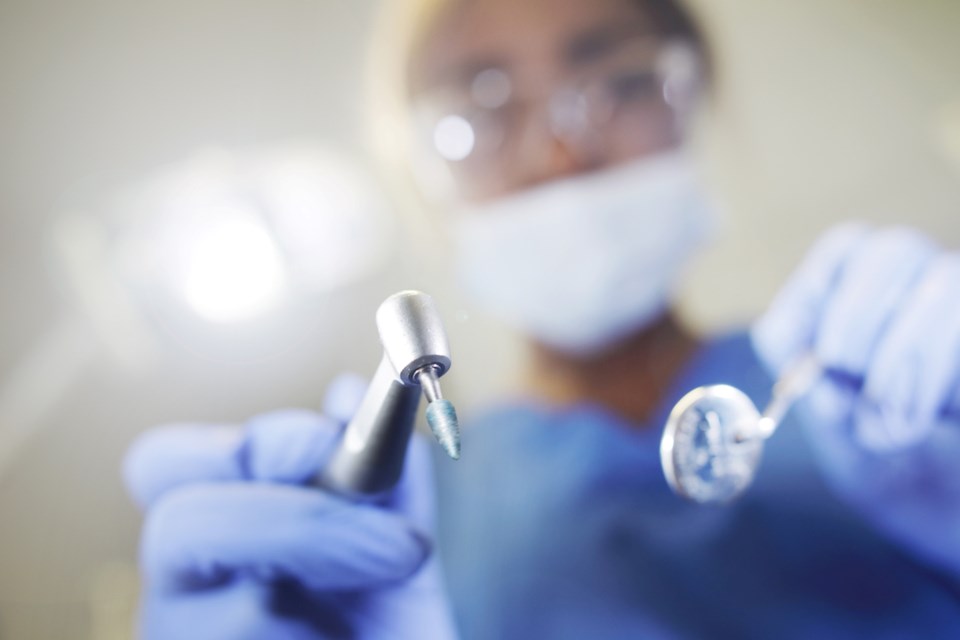Could С����Ƶ’s new single oral health-care regulator not have a dentist on its board of governors?
It’s conceivable, according to the С����Ƶ Dental Association (С����ƵDA), which claims to be “shocked and appalled” to learn the new British Columbia College of Oral Health Professionals (С����ƵCOHP) has chosen to not provide dentists with a dedicated position on its board.
"When you are in pain or have an urgent oral health issue, you want to see a dentist," said Dr. David Lim, С����ƵDA president-elect in a statement on Aug. 8.
"Dentists are the only oral health professionals with hospital admitting privileges and are trained to deal with complex oral health conditions. The proposed Board composition and election process, which leaves the possibility of having no dentists represented, is absolutely unacceptable,” explained Lim.
The new regulator takes effect Sept. 1 and amalgamates the following four legacy oral health- care colleges under one regulatory umbrella: the College of Dental Hygienists of С����Ƶ, the College of Dental Surgeons of С����Ƶ, the College of Dental Technicians of С����Ƶ and the College of Denturists of С����Ƶ.
Dentists fall under the the College of Dental Surgeons of С����Ƶ.
The С����ƵCOHP is proposing a bylaw (with a notice period ending Aug. 17) that could see no dentist on its board.
Four registrants are guaranteed board membership. One must be a dental hygienist or a dental hygiene practitioner; another must be a dental technician; and another must be a full denturist. That leaves room for one more and the bylaw indicates it must be either a dentist or a dental therapist.
One certified dental assistant plus appointed members will round out the board, according to , a website promoting government’s efforts to “modernize” oral health regulations and oversight.
Although the newly appointed board includes dentist Dr. Alexander Hird, the association’s spokesperson Cary Chan explained the board voting process could drown out any further dentist appointment.
The bylaw, said Chan by email, “provides only the ‘opportunity’ for up to 2 dentists to be elected and no guarantee to have any dentists on the board in the future, especially in the context of a registrant-based election process, where dentists are represented by less than 25% of the overall number of registrants.”
The association, said Chan, “is asking for an equal opportunity for guaranteed board representation, as this same guarantee is provided to our registered dental hygienist, certified dental assistant, registered dental technician, and registered denturist colleagues.”
Glacier Media reached out to Oral Health Amalgamation С����Ƶ for comment on the concerns raised by the association.
In response, on August 9, following initial online publication of this story, Anita Wilks, director of strategy and engagement for the College of Dental Surgeons of С����Ƶ explained that the bylaw drafters provided equal opportunity for each oral health profession to be elected to the board. And her college, said Wilks, is the only regulator of the four legacy colleges that oversees more than one group of oral health professionals (certified dental assistants, dental therapists and dentists) and more than one group of registrants (dental therapists and dentists).
As such, said Wilks by email, "to assign a dedicated position for dentists would result in unequal opportunity whereby all registrant types and certified dental assistants would have two opportunities to serve on the board, but dental therapists would have only one."
Steering this decision is an independent review of the college's governance called the Cayton Report, which calls for adoption of a governance structure that promotes "regulatory independence from professional interests."
Wilks provided a breakdown of the membership composition of the new С����ƵCOHP:
- Certified dental assistants (CDAs): 6,679
- Dental therapists: 4
- Dentists: 4,101
- Dental hygienists: 4,538
- Denturists: 267
- Dental technicians: 347
- Total: 15,936


